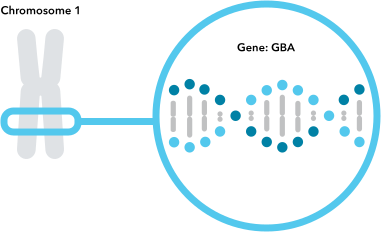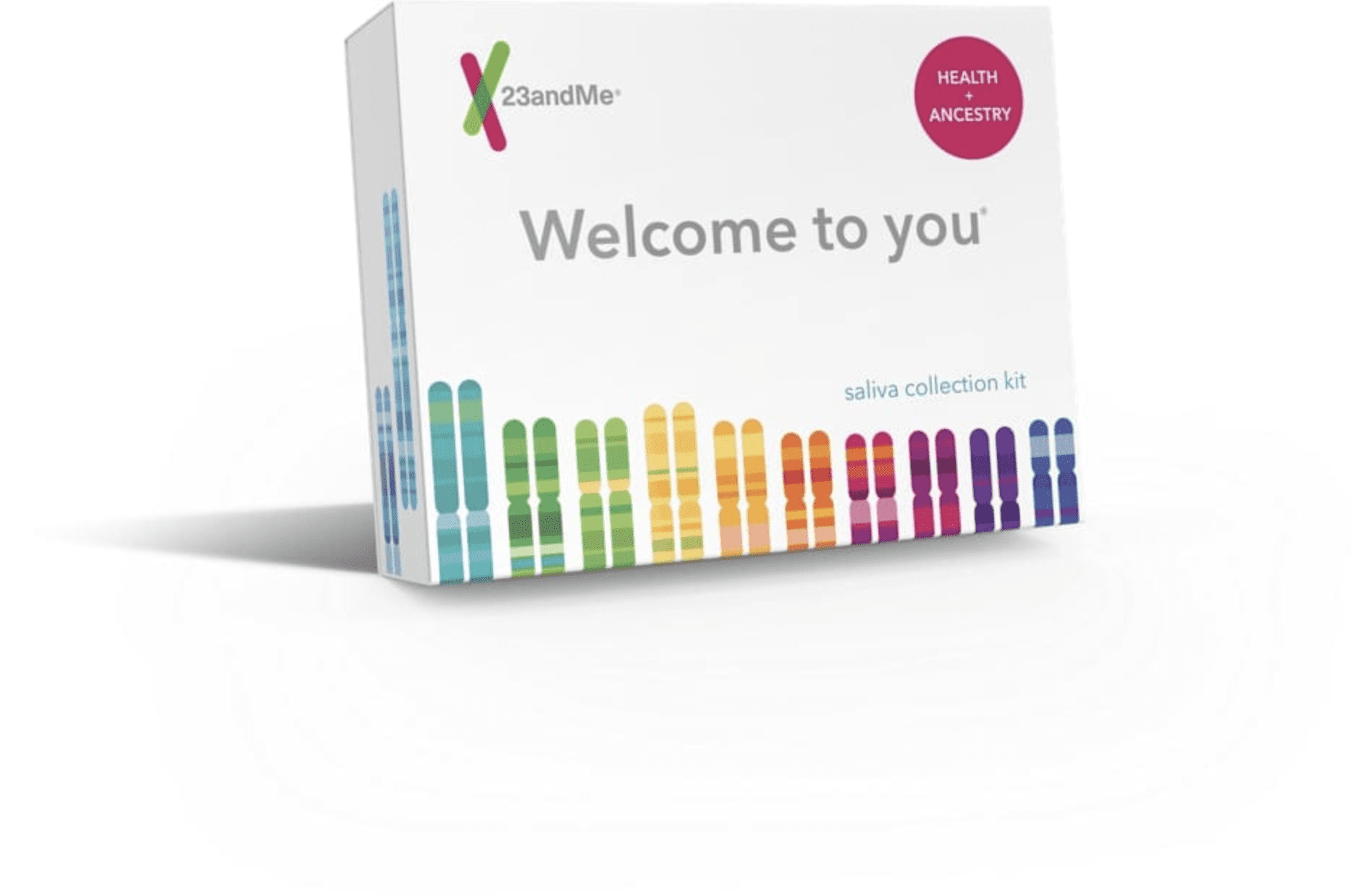Let's talk aboutGaucher Disease Type 1 & Genetics
What is Gaucher disease type 1?
Gaucher disease type 1 is a rare genetic disorder that can affect many organs. It often leads to an enlarged liver and spleen, as well as bone abnormalities. A person must have two variants in the GBA gene in order to have Gaucher disease type 1. People with just one variant in the GBA gene are called carriers. They’re not expected to have the condition themselves, but they could pass their variant on to their future children.
Causes of Gaucher disease type 1
Gaucher disease type 1 is caused by variants (differences) in the GBA gene, also called GBA1. The GBA gene contains instructions for making an enzyme that breaks down a large, fatty molecule called glucocerebroside into simpler sugars and fats. Certain variants in the GBA gene prevent the enzyme from functioning. This can cause glucocerebroside to build up to harmful levels in various organs.

When symptoms develop
Symptoms of Gaucher disease type 1 can develop anytime from childhood to adulthood and can vary from mild to severe. Some people may never develop symptoms.
Typical signs and symptoms
- Enlargement of the liver and spleen
- Bone weakness and pain
- Growth impairment
- Anemia and low platelet count
Ethnicities most affected
Gaucher disease type 1 is most common in people of Ashkenazi Jewish descent but also occurs in people of other ethnicities. About 1 in 18 people of Ashkenazi Jewish descent is a carrier for Gaucher disease type 1.
Explore more
23andMe can tell you whether you might be a carrier for Gaucher disease type 1. Being a carrier means you have a genetic variant that you could pass down to your future children. 23andMe does not test for all possible genetic variants linked to Gaucher disease, and individuals who have zero variants detected still have a chance of being a carrier for Gaucher disease.
23andMe tests for three variants in the GBA gene that are linked to Gaucher disease type 1 and is most relevant for people of Ashkenazi Jewish descent. If you have a certain combination of genetic variants, the report may also tell you if you’re at personal risk for developing symptoms of Gaucher disease type 1. The Gaucher Disease Type 1 Carrier Status report* is included in the 23andMe Health + Ancestry Service.

Health + Ancestry Service
*The 23andMe PGS test uses qualitative genotyping to detect select clinically relevant variants in the genomic DNA of adults for the purpose of reporting carrier status and reporting and interpreting genetic health risks. The relevance of each report may vary based on ethnicity. Our carrier status reports can be used to determine carrier status, but cannot determine if you have two copies of any genetic variant. These carrier reports are not intended to tell you anything about your risk for developing a disease in the future or anything about the health of your fetus, or your newborn child’s risk of developing a particular disease later in life. For certain conditions, we provide a single report that includes information on both carrier status and genetic health risk. The Gaucher Disease Type 1 Carrier Status report is indicated for the detection of the N370S, 84GG and V394L variants in the GBA gene and is most relevant for people of Ashkenazi Jewish descent. The report can tell you if you have two variants in the GBA gene or two copies of the N370S variant, and if you are at risk for developing symptoms of Gaucher disease type 1; the report cannot tell you if you have two copies of the 84GG or V394L variant or have one copy of each of those variants.
References
Gross et al. (2008). “Carrier screening in individuals of Ashkenazi Jewish descent.”10(1):54-6.
Hughes DA et al. (2000). “Gaucher Disease.” [Accessed Nov 21, 2023].
Mayo Foundation for Medical Education and Research. “Gaucher disease.” Mayo Clinic. Retrieved April 16, 2019, from https://www.mayoclinic.org/diseases-conditions/gauchers-disease/symptoms-causes/syc-20355546.
U.S. National Library of Medicine. (2022). “Gaucher disease.” MedlinePlus.